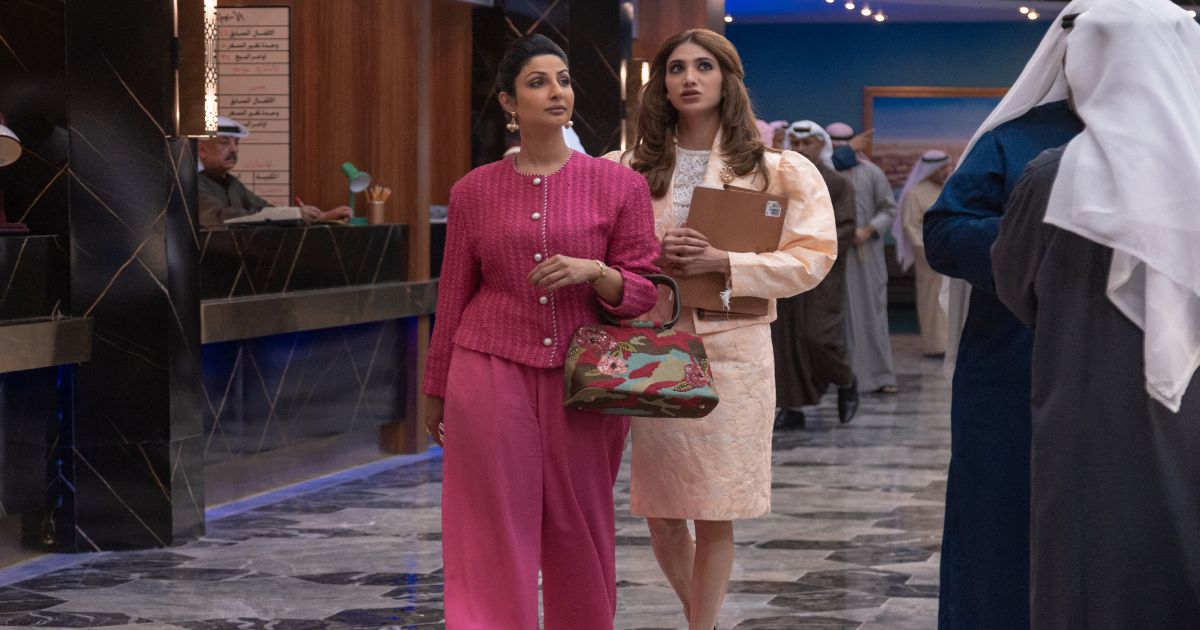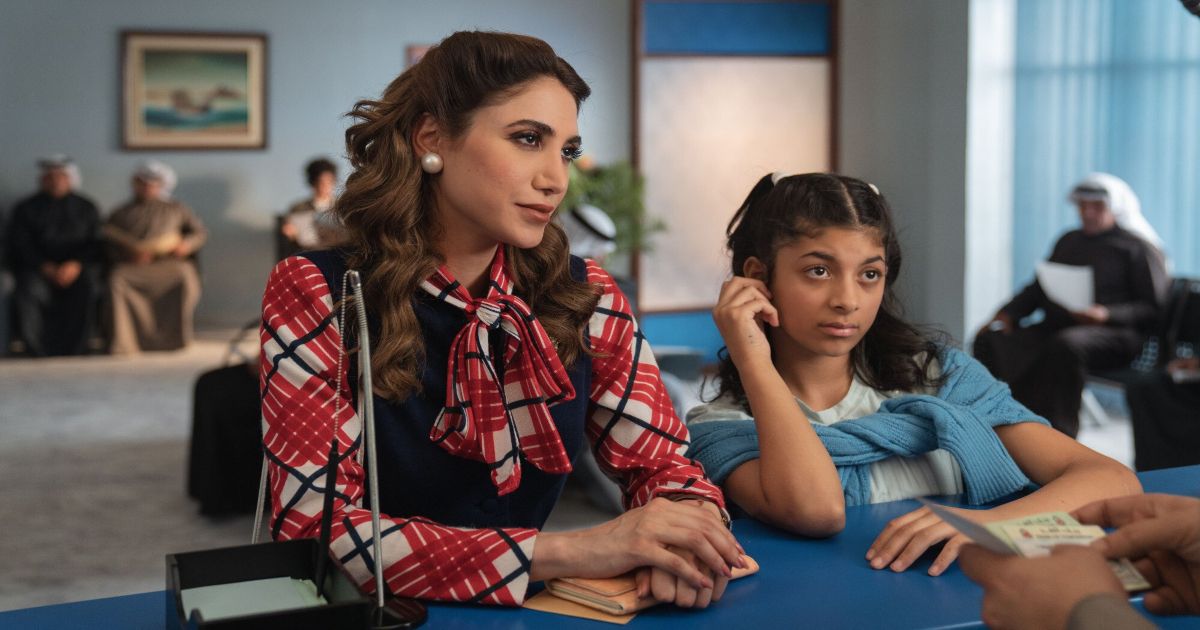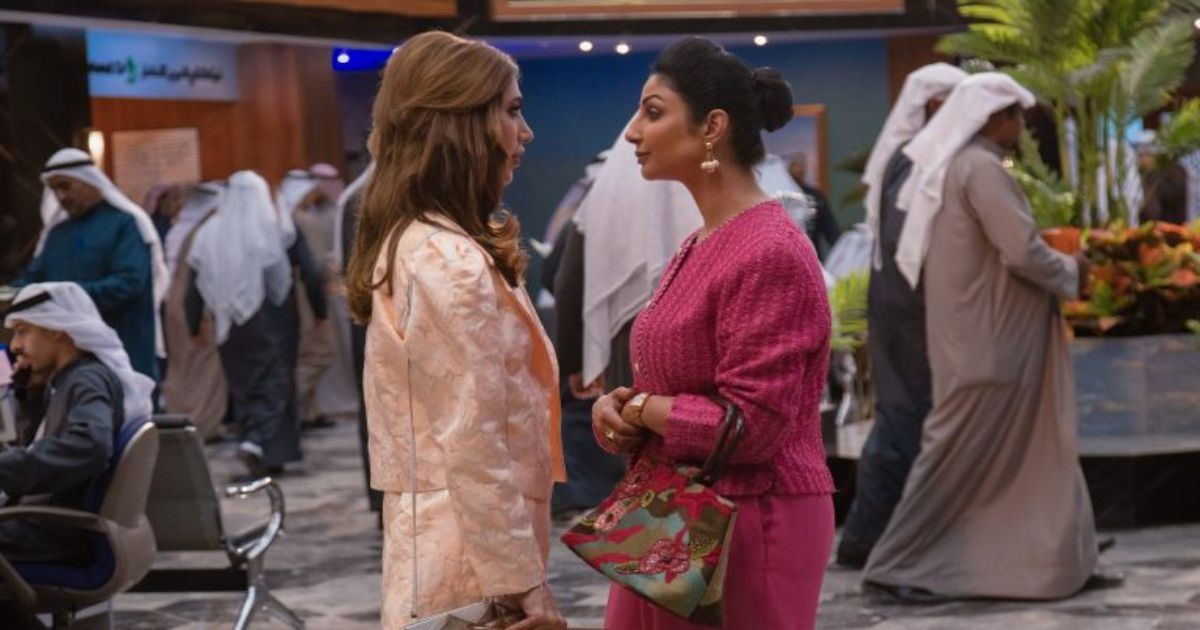One of the most stressful jobs that a person could have is being a trader on the floor of the stock exchange. Even though the craft has most definitely become easier through the years with orders being placed through silent and towering carousels made out of computer systems, transactions were once made with incessant yelling matches taking place between many buyers and just a few sellers. In recapturing the erratic and old-school vibe of what the stock market used to be but with a modern spin on the subject, Netflix has released a workplace drama called The Exchange.
Being Kuwait’s first original series for the streaming platform is based around the inner workings of the Kuwait Stock Exchange and is set in the late 1980s, which was when the country had a few more years of being liberal before Saddam Hussein’s invasion heinous invasion. The Exchange, which was inspired by true events and is considered by some to be a new-age Wolf of Wall Street, revolves around two highly motivated and inspirational women named Farida and Munira.
While the former is a newly divorced mother of one who takes a much-needed job that consists of working alongside her cousin on the cutting room floor of Kuwait’s Wall Street, the latter of the two is a more experienced and knowledgeable woman in her thirties who knows what it’s like to be employed in a male-dominated environment. As the audience sees them both uniquely handle the ongoing pressure from the fast-paced world of balancing stocks, we are also given a look at how this constant upheaval affects their private lives.
Breaking Gender Barriers In The Exchange
Kuwaiti actresses Rawan Mahdi (who starred in Netflix’s The Cage and What If?) and Mona Hussain (who not only also has a role in What If? but also plays a part in a two-season drama called Mohammed Ali Road) help separate The Exchange from other workplace dramas, like Suits and Silicon Valley, by bringing forth different perspectives of women who are currently in occupational spaces where society’s traditions have consistently pushed them not to be in. Not only that, but we see the effects of this modern age shake-up trickle down to tensions in family life and quarrels in relationships.
In Farida’s case (who has been voiced by Hastia Bakian for the English dub), her daughter’s life takes a turn for the worse in school from bullies who make fun of her mother’s story and her ex-husband automatically starts using her fragile status for his own gains. On the other hand, Munira (who is brought to life vocally for English-speaking audiences by Samia Mounts), even though she knows how to stand her ground in the boys club at work, strives to still be taken seriously at home, where her mother and father still treat her lesser than her four brothers even though she is naturally better equipped to deal with professional matters.
When it comes to romanticism in the workplace, relationships for both women that once blossomed out of a dog-eat-dog kind of workplace always fizzle out because of the same mindset being carried over. Playful flirting that once cultivated attraction ends up transforming into logistical favors that create resentment. Not only that, but Farida's social status as a divorced woman stops a potential flame from pursuing her.
The Supporting Cast Helps Make The Exchange Shine
With The Exchange ending on a high note that contains more than one cliffhanger in tow, supporting cast members really helped bring this show to a meaningful close. Hussein Almahdi stars as Saud, a managerial clerk who really helps bring the climax of the show to an all-time high with his performance of a man whose motivations are fogged. Faisal Alamiri brings the character of Amir, Bank of Tomorrow's risk manager to the show.
The cool but striking character helps not only to curb unnecessary spending for the workers but also alleviates emotional outbursts when the tension of the stock market gets to be too much. Among the many other actors and actresses that make up the new Netflix show, one must not forget about Farida’s daughter Jude. Brought to life by Rayan Dashti, her acting pulls the viewing audience into the fictional world of The Exchange and makes them believe once more that a child’s needs are legitimate and not something that should just be cast aside.
Vibrant Color in 1980's Kuwait
With each of the six episodes averaging around fifty minutes and available in many languages (with subtitles as well), writers Nadia Ahmad and Adam Sobel combined with the directorial efforts of Jasem Al-Muhanna and Karim Elshenawy help in their own unique ways to make this show a must-watch. While not explicitly focusing on the political uneasiness at the time between Kuwait and Iran, there are definitely moments that show the outside world becoming more and more of a factor in the main characters’ lives. Not only that, but the color palette that was used during the making of the sets and the makeup design really brought forth the fact that this drama was set in the bright and vibrant 1980s and not during the present.
While this new series is a great watch for stock market historians and world history enthusiasts, viewers will also become easily fascinated with Farida and Munira who continuously break the glass ceiling of Kuwait’s boy club. Exclusively streaming on Netflix, The Exchange is one show you do not want to miss.




